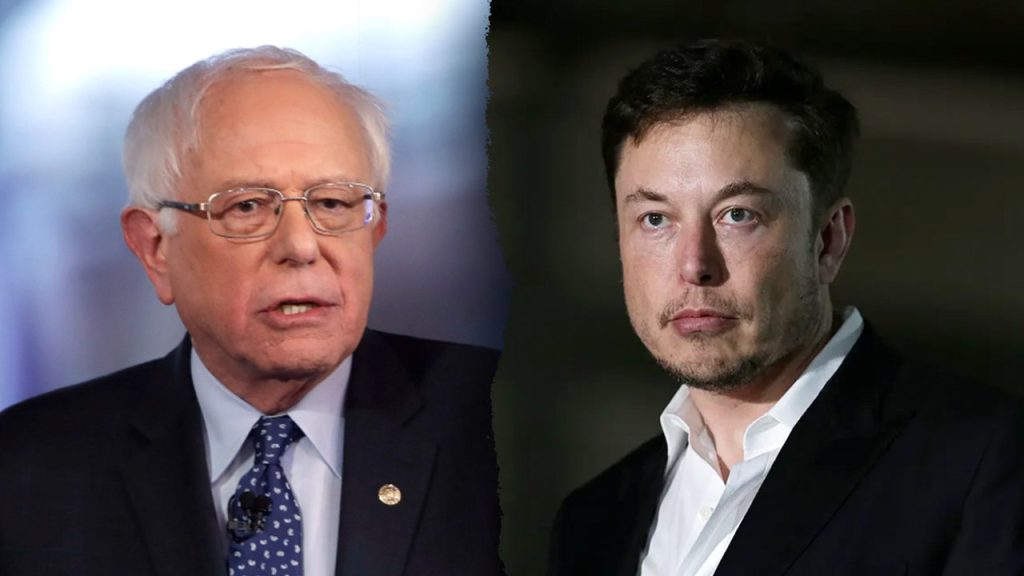The H-1B visa program, designed to allow U.S. companies to recruit foreign workers for specialized occupations, has become a contentious issue, sparking debate across the political spectrum. Senator Bernie Sanders, a staunch critic of the program, argues that its primary function is not to attract the “best and brightest” but rather to supplant well-paid American jobs with lower-wage foreign workers, effectively creating a system of indentured servitude. This, he contends, benefits billionaires who profit from cheaper labor at the expense of American workers. Sanders points to statistics indicating that major corporations utilizing the H-1B program have laid off thousands of American employees while simultaneously hiring foreign workers through the program. He questions the program’s purported focus on highly skilled individuals, citing examples of H-1B visa holders employed in roles such as dog trainers and massage therapists, positions readily filled by the American workforce. Sanders advocates for substantial increases in guest worker fees to fund training and opportunities for American workers, alongside other reforms like raising minimum wages and facilitating job mobility. He emphasizes that hiring a foreign worker should never be more cost-effective than hiring an American.
Sanders’ critique of the H-1B program aligns with his broader concerns about the impact of globalization and free trade agreements on American jobs. He argues that the promises made in the 1990s, that the loss of blue-collar jobs due to free trade would be compensated by an increase in white-collar IT jobs, have proven false. Instead, he asserts, corporations have not only outsourced manufacturing jobs to countries with lower labor costs but are now also importing foreign workers to fill available technology positions, further undermining the American workforce.
The debate surrounding the H-1B program has also ignited divisions within the Republican Party. Prominent figures like Elon Musk and Vivek Ramaswamy have defended the program, highlighting its importance for tech companies in accessing skilled talent. Musk, in particular, credits the H-1B program with enabling him and others to contribute to American innovation through companies like SpaceX and Tesla. This stance, however, has rekindled the debate within conservative circles about whether the program genuinely attracts top talent or primarily serves as a mechanism for companies to secure cheaper labor, predominantly from India, effectively binding these workers to their employers through visa restrictions.
This internal conflict within the Republican Party underscores the complexities of the H-1B visa issue. While some argue that it is crucial for maintaining American competitiveness in the global tech industry, others express concerns about its potential to displace American workers and suppress wages. The debate often revolves around the question of whether the program is being utilized as intended or if it is being exploited by companies seeking to reduce labor costs. The contrasting perspectives within the Republican Party, as exemplified by Musk and Ramaswamy’s support for the program and others’ concerns about its potential for abuse, highlight the challenges in finding a consensus on how to best manage the H-1B visa program.
The H-1B visa program continues to be a lightning rod for political debate, raising fundamental questions about the balance between attracting global talent and protecting American jobs. Sanders’ criticisms, coupled with the internal divisions within the Republican Party, underscore the need for a thorough examination of the program’s effectiveness and its impact on the American workforce. Finding a solution that addresses the concerns of both sides – the need for skilled labor and the protection of American jobs – remains a significant challenge.
The debate over the H-1B visa program is not simply about economics; it also touches upon broader societal issues, including immigration policy, globalization, and the future of work. As technology continues to evolve and the demand for specialized skills intensifies, the question of how to best manage the flow of global talent will remain a critical policy challenge. The H-1B program, as it currently stands, is at the center of this debate, and finding a sustainable and equitable solution will require careful consideration of its benefits and drawbacks, as well as its impact on both American and foreign workers.

